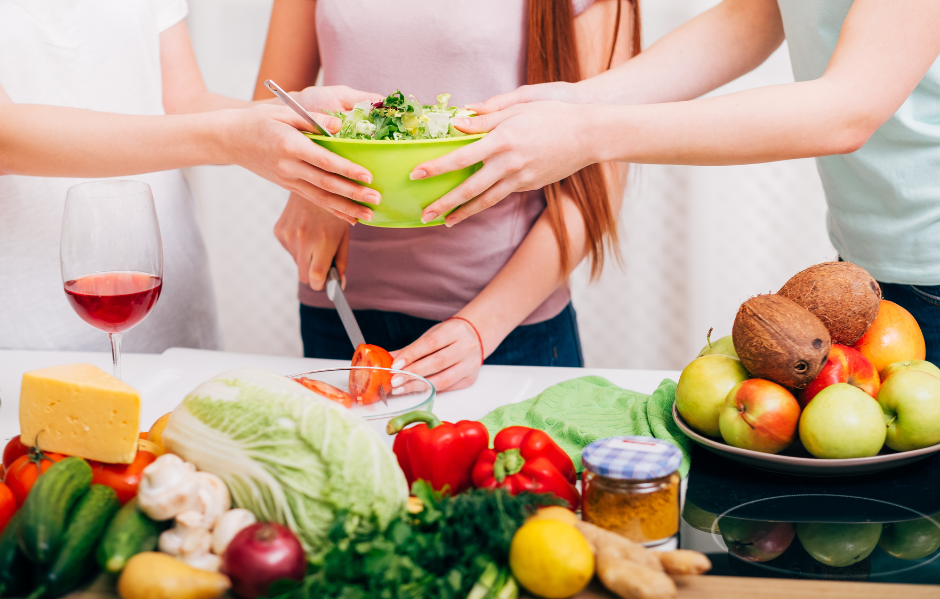The Ultimate Guide to Healthy Snacks for Busy Parents
Introduction
For many busy parents, the hustle and bustle of everyday life often leave little room for prioritizing personal health and well-being. Whether you’re juggling work deadlines or managing your kids’ school assignments, finding time to focus on nourishing food choices may seem overwhelming. But, incorporating healthy snacks into your daily routine doesn’t have to be a daunting chore. It can significantly boost your energy levels, improve your focus, and support your overall well-being.
The Benefits of Healthy Snacks
Healthy snacks can be a great source of essential nutrients, energy and can help to sustain focus and concentration throughout the day. They help avoid hunger pangs and overeating during meal times. A well-planned snack can also support your overall well-being by reducing stress and anxiety levels, improving physical stamina, and even boosting mood. Remember, food is not just about filling our stomachs; it’s about nourishing our bodies and minds.
Planning Ahead for Success
The key to successfully keeping up with nutritious snacking requires a bit of preparation and organization. Making a list of snacks to buy and preparing them at the start of the week makes it easier to grab a healthy option when hunger strikes. For on-the-go parents, consider quick and easy snack ideas like pre-cut fruits and veggies, a handful of mixed nuts or seeds, or cheese and whole grain crackers that can be packed ahead of time.
Nutrient-Rich Snack Options
Choosing snacks that provide a variety of nutrients can contribute to a balanced diet. This means including a mix of fruits and vegetables, nuts and seeds, and whole-grain snacks. These options provide essential vitamins and minerals — think vitamin C from oranges and potassium from bananas, heart-healthy fats from nuts and seeds, and dietary fiber from whole grain snacks.
Protein-Packed Snack Ideas
Protein-packed snacks are ideal for preventing midday slumps as they help keep you fuller for longer. Greek yogurt, high in protein and probiotics, can support gut health. Hard-boiled eggs are an excellent source of inexpensive, high-quality protein. Also, a bowl of hummus served with veggie sticks can make a delicious and nutritious snack.
Healthy Snacks for Kids
Involving kids in meal preparation can help them develop a positive relationship with food. Encourage younger kids to engage in simple tasks like washing berries or choosing which veggies to include in snack time. Additionally, creating snack ideas that kids will love demands creativity. Consider healthy and kid-approved options like rainbow fruit skewers, cheese cubes, or homemade granola bars.
Avoiding Processed Foods
While many processed snacks are marketed as ‘healthy,’ they often contain high amounts of added sugars, unhealthy fats, and artificial ingredients. Consuming such snacks can lead to health risks like obesity, diabetes, and heart disease over time. Choosing whole food alternatives like fresh fruits, raw nuts, and air-popped popcorn promotes holistic health and wellbeing.
Snack Ideas for Special Dietary Needs
Whether it’s due to allergies, intolerances, or lifestyle choices, many people are looking for gluten-free, dairy-free, vegan, or vegetarian snack options that are still packed with flavor. Consider savory gluten-free rice cakes, dairy-free almond yogurt, or vegetarian-friendly hummus wraps as alternatives.
Incorporating Superfoods into Snacks
Adding a handful of superfoods—which are nutrient-dense and promote good health—into your snacks can enhance their nutritional value. Chia seeds in your yogurt, avocados in your salad, dark chocolate covered berries, or adding quinoa to a salad are ways to incorporate superfoods into snacks. Remember, these are not magic solutions, but they can complement a balanced diet.
Hydration and Snacking
Staying hydrated isn’t just about drinking eight glasses of water a day. It’s also about eating foods with high water content. This not only helps to keep the body hydrated but also aids the digestion process. Consider think cucumbers, watermelons, or refreshing homemade popsicles made from water-rich fruits, infused water, and herbal teas as part of your snack rotation.
Mindful Snacking Practices
Mindful eating can prevent overeating and promote weight management. By slowing down, paying attention to what you eat, and savoring every bite, mindful eating helps improve digestion enhances the enjoyment of food and nurturing a healthier relationship with food.
Snack Ideas for Different Times of Day
Match your snack to the time of day and the level of activity to get the most energy. Start your morning with energizing snacks like a granola bar or a piece of fruit. Mid-afternoon pick-me-ups like a handful of nuts or a smoothie can help keep the afternoon slump at bay. For winding down in the evening, calming snacks like a warm cup of herbal tea or a small bowl of diced melon can be soothing.
Community Resources for Healthy Eating
If you’re looking for inspiration to fuel your healthy snacking journey, there are plenty of community resources available. Local farmers’ markets are treasure troves of fresh, seasonal produce, and often offer unique varieties you won’t find in the supermarket aisle. Online, numerous health and wellness blogs offer an abundance of nutritious and simple snack recipes.
Join the UnifiedCaring.org Community
Unified Caring provides a community of support where you can access a range of benefits designed to enhance your health, and well-being. This includes online meal planners, support from our caring community, and more. Our mission is to foster caring in our world and build caring habits that benefit you, others, and the planet. Join the Unified Caring community today.
Conclusion
In conclusion, prioritizing health and wellness through nutritious snacking practices is a necessity, not a luxury. By making informed choices and planning ahead, you can ensure you’re fuelling your body and mind with what they need to function optimally.

